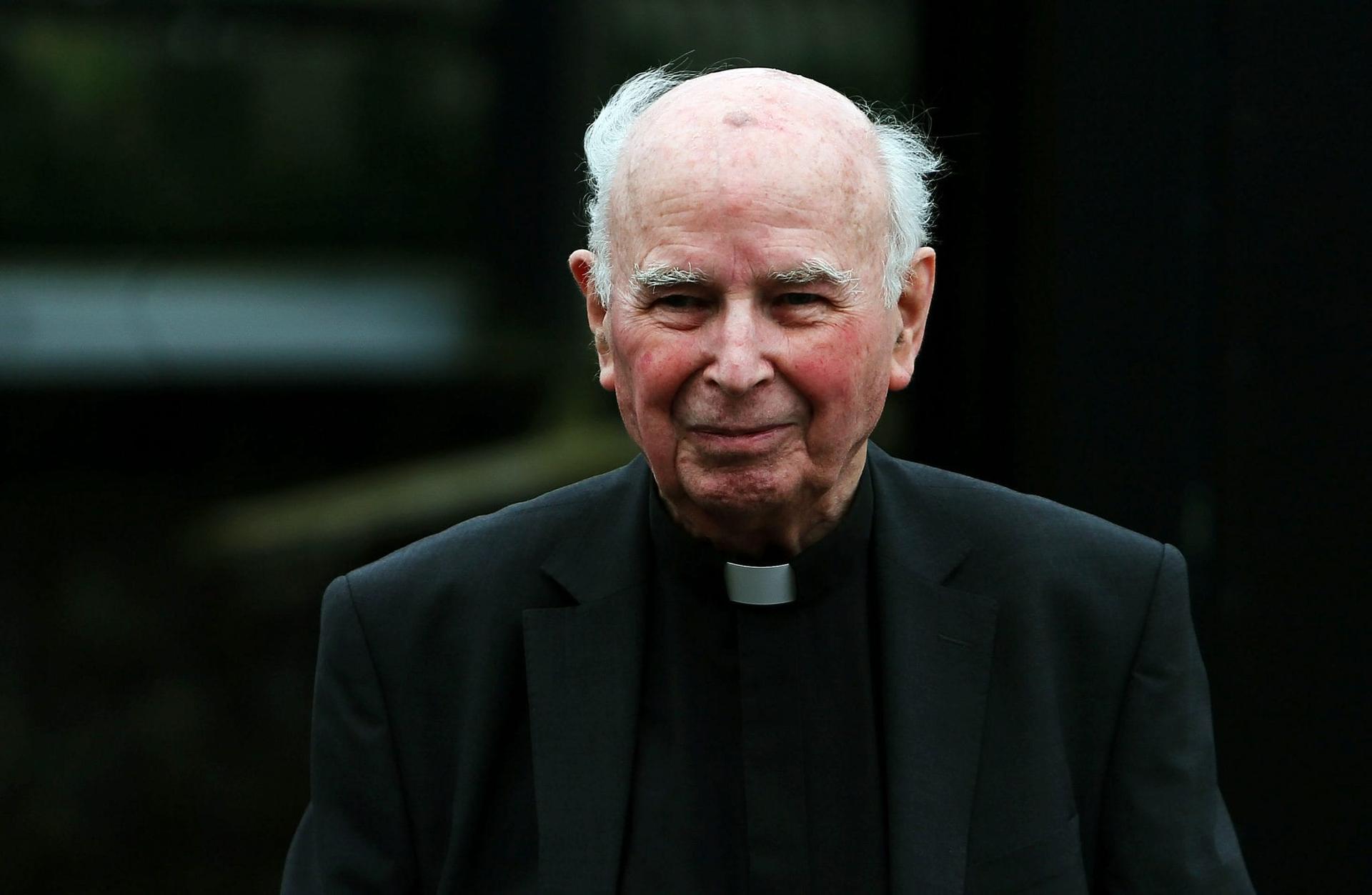LONDON — Former Roman Catholic Bishop Edward Daly, who tended victims of Northern Ireland’s Bloody Sunday killings and became a defining image of the massacre, has died aged 82.
The Catholic Diocese of Derry says Daly died peacefully on Monday after a long illness.
Daly was a priest in Londonderry when British paratroopers opened fire on a Catholic civil-rights protest march on Jan. 30, 1972, killing 13 people. The killings helped fuel Northern Ireland’s sectarian violence, in which some 3,000 people died.
Daly became a hero by administering last rites to victims on the streets amid the mayhem of the Catholic Bogside district. A photo of the priest waving a blood-stained white handkerchief as he tried to help a dying 17-year-old become one of the event’s iconic images.
“There’s scarcely a day that passes when I don’t think about that day. It’s haunted me all these years,” Daly said 25 years later.
An initial British inquiry outraged Northern Ireland Catholics with its finding that the British troops’ gunfire followed IRA firing and that the victims could have been armed.
A 12-year investigation found in 2010 that the soldiers were not under attack and fired without justification on unarmed civilians, many of whom were fleeing or aiding the wounded.
Daly served as a priest in the city from 1962, and was Bishop of Derry from 1974 to 1994, stepping aside after suffering a stroke.
Daly later served as chaplain to a hospice in the city. In 2011 he published a memoir, and made headlines by saying that the church should allow priests to marry.
Over the years, he became close friends with the city’s Protestant bishop, James Mehaffey, and the two campaigned for an end to violence.
Mehaffey, the retired Church of Ireland bishop of Derry and Raphoe, said Daly “was a man of God and a man of the people, a great church leader and a remarkable friend.”
Irish President Michael D. Higgins expressed “great sadness” at news of Bishop Daly’s death.
“Edward Daly will be remembered by many for his peaceful, compassionate, humanitarian and courageous actions during the appalling events of Bloody Sunday,” he said.
“This was but one part of the great contribution that was his life of service to the citizens of Derry, including as it did his leadership in the tasks of regeneration and his work with the hospice movement in the later part of his life,” Higgins said.
After Daly was named to the Diocese of Derry in 1974, he campaigned for the British authorities to build houses for the Catholic community and frequently denounced injustices suffered by Catholics at the hands of the authorities. At the same time, he denounced paramilitary violence aimed at British troops and the police in Northern Ireland.
Archbishop Diarmuid Martin of Dublin said Bishop Daly’s bravery was “apparent in his lived conviction that violence from any side during the Troubles was futile and could never be morally justified.
“He was courageous in speaking out against injustice and took many personal risks for peace and reconciliation,” Martin recalled.
Bishop Donal McKeown of Derry said his predecessor “served, without any concern for himself, throughout the traumatic years of the Troubles, finding his ministry shaped by the experience of witnessing violence and its effects; through this dreadful period he always strove to preach the Gospel of the peace of Christ.”
“Bishop Daly provided an example of priestly ministry which was exemplary, inspired by service of God and the people he encountered,” McKeown said.
Catholic News Service also contributed to this report.










